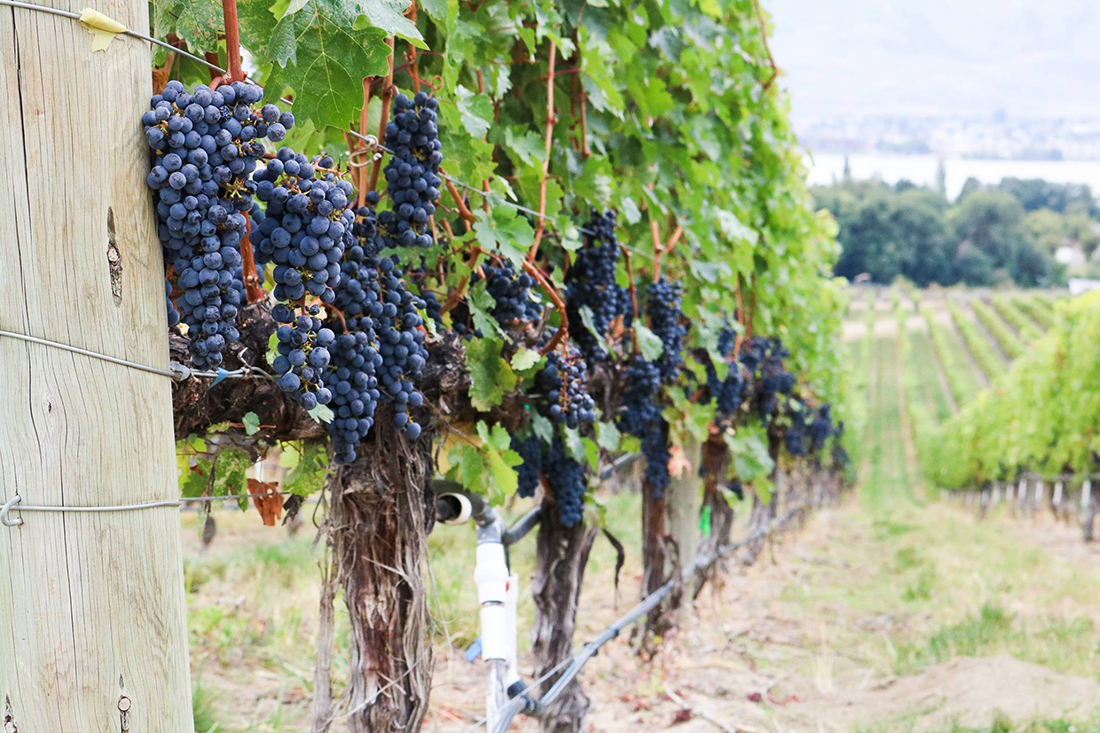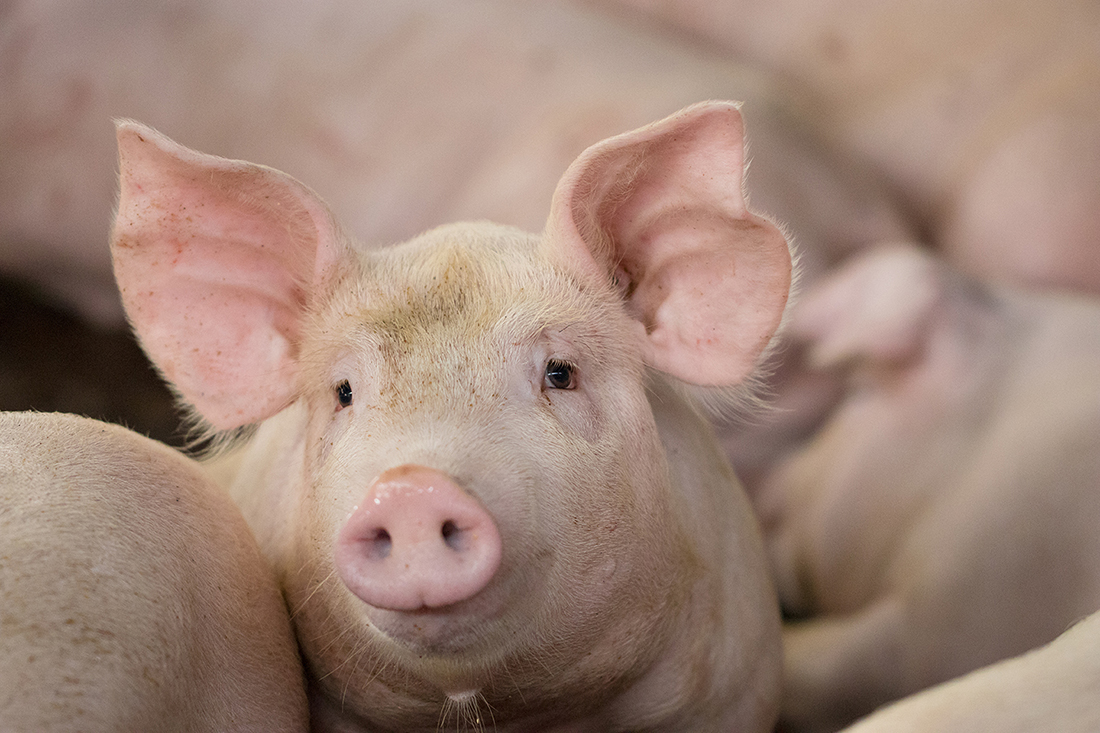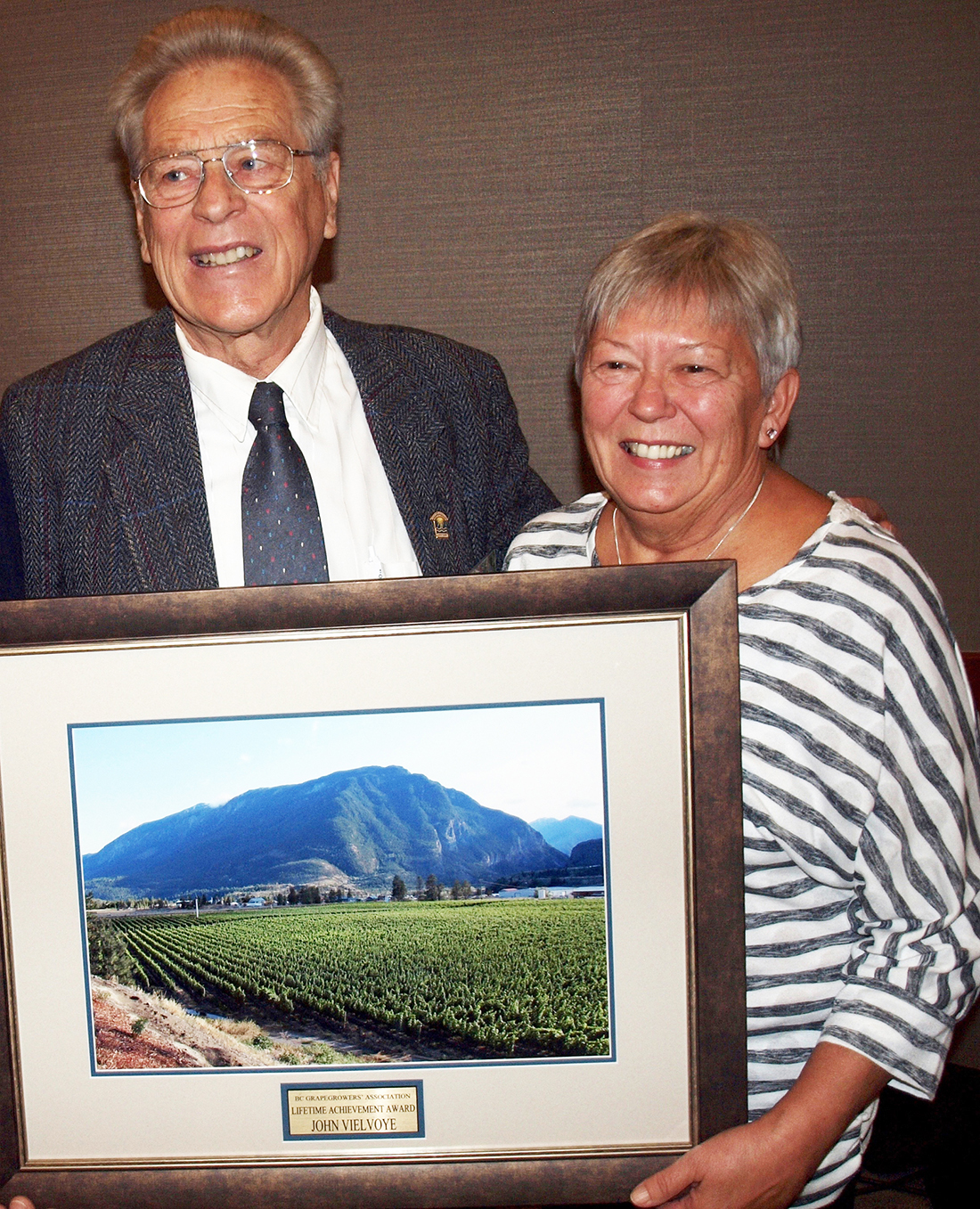PENTICTON – It was an all-wine grapes meeting when the two groups that represent the sector met together for the first time in Penticton in early April. Kathy Malone, winemaker at Hillside Winery in Naramata and chair of the BC Wine Grape Council (BCWGC) tipped her glass to the BC Grapegrowers’ Association (BCGA) for hosting a joint event.
“We thank the BCGA for teaming with us,” says Malone.
BCWGC funds research and education through a $10 per ton levy collected from wineries on all grapes processed that are grown in mainland BC. Malone reviewed the work of six committees, including those overseeing health and safety, lab proficiency, and research and development. The work of the sustainability committee received special mention.
“Sustainable Wine Growing BC is one of the initiatives that we are most proud of,” says Malone. “We are at the tipping point to be able to offer sustainability certification.”
The program has been in development for 10 years, with Sustainable Wine Growing BC now offering self-assessment tools that develop sustainable practices for vineyards, wineries and winery hospitality.
Sustainable Wine Growing BC administrator Katie Pease outlined a pilot project planned for this year.
“We are taking those assessment tools and turning them into certification standards,” she says. “Customers care about sustainable practices and they are increasingly choosing them in the marketplace.”
She anticipates launching the full certification program in 2020.
Virus-free
Oliver grower Hans Buchler, chair of the Canadian Grapevine Certification Network, provided an overview of the network’s program to develop a supply of certified virus-free grapevine material for propagation.
“The industry in Canada is mature enough to be able to pool our resources for this project,” notes Buchler. The network includes the BC Wine Grape Council, Grape Growers of Ontario, Grape Growers Association of Nova Scotia and the Quebec Winegrowers Association.
“We are all focusing on improving the sustainability of the sector,” says Buchler.
BCGA president Mason Spink, winemaker at Dirty Laundry Vineyard in Summerland, described the association’s education and lobbying activities.
“We have a very strong board that does a lot of work on your behalf behind the scenes,” says Spink, noting that the association is run by volunteers.
BCGA grower days have been well-attended, with recent workshops on pruning, canopy management, spray programs and soil optimization.
One of the key programs BCGA administers is the successful starling control program.
BCGA administrative officer and starling program administrator Tyrion Miskell gave an overview of the new funnel trap being piloted in the North Okanagan to capture birds wintering in local dairy barns. The trap allows birds to be caught by the hundreds, with entire flocks eliminated rather than just a few birds at a time via conventional trapping. The program has captured 834,019 birds to date.
Miskell took the opportunity to appeal for more grower donations to support the program.
“Just because we are not seeing as many birds doesn’t mean the program is not important,” she says. “If we weren’t trapping, we estimate there would be over a million birds in the valley now.”
Western Agriculture Labour Initiative manager Veronica Moreno updated growers on changes to temporary farm worker programs. A representative from Service Canada also spoke to the group via teleconference.
Spink notes there are now over 50 vineyards that rely on labour from the Seasonal Agriculture Worker Program and he expects that will increase.
New awards
BCGA has established two new awards this year, recognizing viticulturalist of the year and lifetime achievement.
“We are excited to announce these awards and hope that they help to spur the level of quality across the industry,” says BCGA director John Bayley. “These are the people who are responsible for the day-to-day activities that grow the grapes. We hope that it will become a bit of a benchmark for the industry.”
BCGA is accepting nominations for viticulturalist of the year until May 31. The award will be presented at the annual meeting next spring. The province’s former grape industry specialist, John Vielvoye, received the first lifetime achievement award at the April 4 meeting.
An afternoon workshop on grower relations and contract negotiation featured a panel discussion between two growers and two winery owners chaired by Sandra Oldfield, former winemaker and CEO of Tinhorn Creek Vineyards and now a consultant to the BC beverage industry.
“We have been trying for a long time to get a grower contract workshop,” says Miskell. “When Sandra approached me about it, the timing was great.”
A good contract begins with a long-term trusting relationship, says Naramata grower Rod King.
“You need to work on that relationship for a win-win,” says King. “That includes conversations between the winery and the vineyard on a regular basis.”
Industry lawyer Mark Hicken gave an overview of the laws governing grower contracts. Al Steele, vineyard manager for Dutton Ranch in Sebastopol, California, talked about the importance of long term relationships when he addressed the audience via videoconference.
“This is a small industry,” warns Steele. “You know over time who you want to deal with.”
Grapegrowers share sustainability objectives
Joint meeting of grape council, growers association highlights common ground


 Protest sends warning signal
Protest sends warning signal